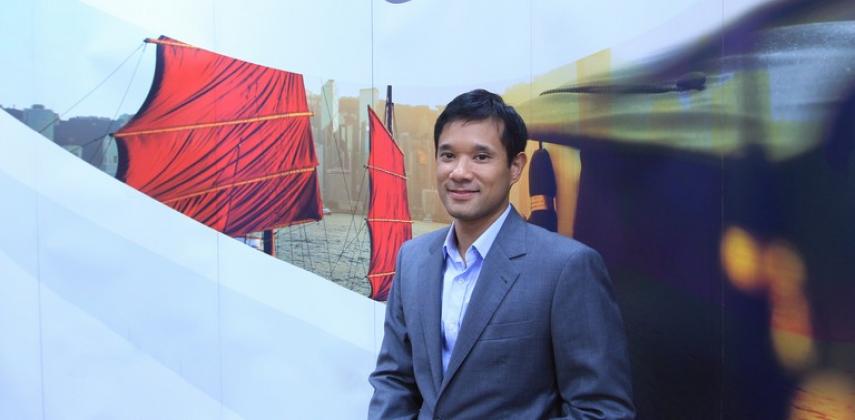Hong Kong-born James Osmund moved to Canada with his family when he was eight years old. He pursued his secondary and further education there, obtaining a university degree in fine arts and, subsequently, a diploma in multimedia and film from Vancouver Film School.
Although Osmund loved life in Canada, he did not believe it would be a good place to develop his career. As he still had relations in Hong Kong, he decided to move back to the city in 2000, and has worked in the booming internet industry ever since.
However, he felt that certain aspects of his education needed to be supplemented with further study. His friends’ favourable reviews of the Macquarie Graduate School of Management (MGSM) prompted him to enrol in its part-time MBA programme. Osmund, currently director of non-linear products for Fox International Channels, expects to finish his MGSM MBA in early 2014.
Why did you opt for an MBA?
As I began considering senior executive positions, I felt there were certain ‘knowledge gaps’ – such as finance and business management – which could be filled by entering an MBA programme. Besides, as I had already obtained a university degree in fine arts, and had previously worked in the internet industry, my background was more or less in the creative field. So I think it necessary to have more concrete knowledge in areas such as business management.
Why did you choose MGSM?
It has a well-rated and well-respected programme that catered to my personal and work demands. With a curriculum focusing on Asia, it adds to my more than 15 years’ work experience in the region that I find of great value in my current job. Besides, friends have offered complimentary comments about MGSM.
Are you funding your own studies or is your company paying for you?
I am primarily funding my studies, so I need to be cost-conscious. My last employer did not supplement MBA studies specifically, but did offer a general education subsidy per certification, per year. And because MGSM allows for articulation, this helped pay some fees.
How do you balance the demands of your job and your studies?
MGSM’s schedule concentrates class lectures over two weekends per eight-week module. This allows me to plan well in advance so that I am not travelling for those weekends. For group work and additional study, I manage that throughout the week or remotely if I am dealing with group assignments. Furthermore, I have found that MGSM is extremely flexible in dealing with the work commitments of their students, setting them up to succeed where time is concerned.
What are the major challenges of your MBA studies?
The major challenge is balancing work and personal demands. Having to study again is another challenge as I’ve left school and stopped being a student for such a long time. Working with people whom you don’t know before and with different backgrounds would be another major challenge – not to mention the good time-management needed. The schedule has been quite hectic indeed.
Are you getting any kind of support?
I get the most support from my family obviously, but also – and as importantly – from classmates and professors. Part of doing an MBA is expanding your network beyond your industry or current contacts, and with classmates from such differing work and cultural backgrounds, you gain vast insights into how each individual would approach varying issues within their industry.
How do you expect your MBA to help you with your career or personal life?
With the competitive nature of today’s employment market, I expect the MBA to add that extra dimension to my CV. Regarding executive positions, both human resources and recruitment agents have mentioned that experience is sometimes more important than qualifications. However, I have spoken with other HR and recruitment professionals who say that, due to the volume of applications they have to process, most are likely to filter out those with MBA qualifications. As for my personal life, it is nice to know so many people with different backgrounds and who work in different industries. You don’t usually meet such people – there is even a police officer in my class.
How do you see yourself after graduation? In three to five years?
The MBA is for me a longer-term commitment. I have no illusion that completing an MBA suddenly propels anyone into upper management. I hope to expand my current knowledge base so that in three to five years, I can consider more options outside the industry that I currently work in.


